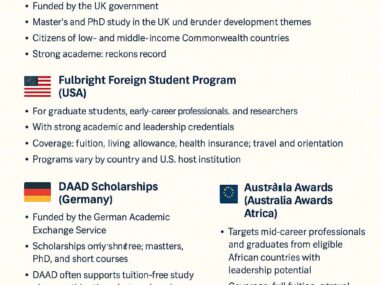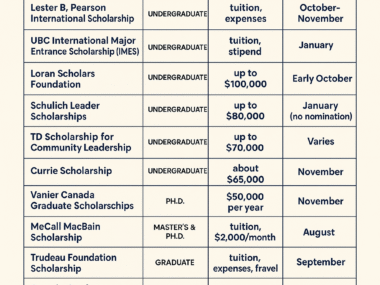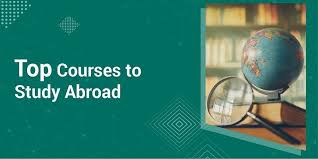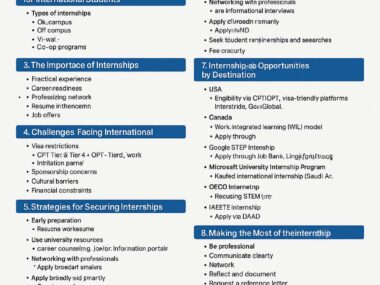UNDERGRADUATE VS. POSTGRADUATE STUDY ABROAD OPTIONS

Studying abroad is a transformative experience that offers students the chance to gain a global perspective, immerse themselves in diverse cultures, and benefit from high-quality education systems. When considering international education, one of the most critical decisions students must make is whether to pursue undergraduate or postgraduate studies abroad. This decision affects not only the nature and length of the academic journey but also the associated costs, eligibility, future opportunities, and personal development.
Studying abroad has become increasingly popular as globalization bridges educational and cultural gaps. Whether for an undergraduate or postgraduate degree, studying in a foreign country offers academic excellence, language proficiency, networking opportunities, and exposure to different educational methodologies.
However, undergraduate and postgraduate programs differ significantly in purpose, duration, expectations, and outcomes. To decide which path suits an individual best, it is essential to understand these differences and evaluate personal goals, academic readiness, and career ambitions.
WHAT IS UNDERGRADUATE STUDY ABROAD?
Definition:
An undergraduate program refers to the first level of tertiary education, usually pursued after completing secondary or high school. It generally results in a bachelor’s degree.
Duration:
- Typically 3 to 4 years depending on the country:
- UK: 3 years
- USA: 4 years
- Canada: 3–4 years
- Australia: 3 years (4 with Honours)
- Germany: 3 years (B.Sc. or B.A.)
Entry Requirements:
- High school diploma or equivalent (e.g., A-levels, IB, WAEC)
- English proficiency tests (IELTS/TOEFL)
- Entrance exams (SAT/ACT for US, UCAS for UK)
- Academic transcripts and recommendation letters
- Statement of Purpose (SOP) and personal essays
Key Features:
- Broad foundational knowledge in the first year
- More general education in the first half, specialization in later years
- Ideal for younger students (typically 17–20 at entry)
- Opportunities for dual degrees or combined majors
WHAT IS POSTGRADUATE STUDY ABROAD?
Definition:
A postgraduate program (also called graduate study in some countries) is pursued after completing an undergraduate degree. It includes master’s degrees, PhDs, postgraduate diplomas, and certificates.
Duration:
- Typically 1 to 2 years for Master’s degrees
- UK: 1 year
- USA/Canada: 2 years
- Australia: 1–2 years
- Germany: 2 years
- PhD programs: 3 to 6 years depending on the country and field
Entry Requirements:
- A completed undergraduate degree
- Minimum GPA or classification (e.g., 2:1 or equivalent)
- Relevant field of study or work experience
- English proficiency tests
- GRE/GMAT (depending on course/country)
- Detailed SOP, research proposals (for PhD), and recommendation letters
Key Features:
- Deep specialization in a subject area
- More research-focused and independent
- Strong emphasis on practical skills, critical thinking, and application
- Often chosen by working professionals or recent graduates
KEY DIFFERENCES: Undergraduate vs Postgraduate Study Abroad
| Factor | Undergraduate | Postgraduate |
|---|---|---|
| Age Range | 17–21 years | 22+ years |
| Degree Type | Bachelor’s | Master’s, PhD, Diplomas |
| Study Duration | 3–4 years | 1–2 years |
| Cost | Higher overall due to longer duration | Less overall, but higher yearly cost |
| Focus | Broad education, foundational learning | Specialization and research |
| Independence | Guided learning with more structure | Self-directed, research-intensive |
| Visa Opportunities | Limited work hours, longer stay | Shorter stay, may lead to work visa faster |
| Career Impact | Entry-level job opportunities | Advanced roles, better salaries |
| Scholarship Availability | Competitive, long-term | Often more abundant, especially for research and development |
| Global Networking | Early-stage exposure | Industry and academia-focused connections |
BENEFITS OF UNDERGRADUATE STUDY ABROAD
1. Global Exposure at an Early Stage
Starting your international academic journey at the undergraduate level provides early access to cultural diversity and global standards, shaping a student’s worldview from a young age.
2. Language and Communication Skills
Being immersed in an English-speaking or multilingual country enhances communication skills, which are critical for future academic and career success.
3. Personal Development
Living independently at a young age fosters self-reliance, resilience, and adaptability.
4. Academic Opportunities
Many international universities offer dual degrees, liberal arts programs, and exchange semesters, which may not be available locally.
5. Long-Term Residency Pathways
A longer duration of study increases the chances of obtaining internships, work experience, and ultimately, permanent residency (PR) in countries like Canada or Australia.
CHALLENGES OF UNDERGRADUATE STUDY ABROAD
- High Costs: Tuition and living expenses over 3–4 years can be substantial.
- Emotional Adjustment: Younger students may struggle more with homesickness and cultural shock.
- Academic Pressure: Adapting to a new educational system can be demanding.
- Visa Restrictions: Limited work rights and strict visa compliance rules.
BENEFITS OF POSTGRADUATE STUDY ABROAD
1. Focused Specialization
Students deepen their expertise in a specific area, which enhances employability and credibility in global job markets.
2. Career Advancement
Postgraduate qualifications often open doors to higher-paying jobs, academic positions, and leadership roles.
3. Networking and Research Opportunities
Graduate students engage with international scholars, conferences, and industry experts.
4. Shorter Duration
Unlike undergraduate programs, most master’s programs are completed in 1–2 years, making them cost-effective and time-saving.
5. Pathway to Permanent Residency
Many countries offer post-study work visas and PR opportunities for skilled postgraduate graduates.
CHALLENGES OF POSTGRADUATE STUDY ABROAD
- Academic Rigor: High expectations in terms of research, independence, and specialization.
- Limited Time to Adapt: Shorter courses mean quicker adjustment is needed to the new environment.
- Funding Issues: Though scholarships exist, competition is intense.
- Visa Constraints: Strict timelines and conditions apply for work and study.
FINANCIAL CONSIDERATIONS
Undergraduate Cost Estimates (per year):
- USA: $25,000 – $60,000
- UK: £10,000 – £30,000
- Canada: CAD 15,000 – 40,000
- Australia: AUD 20,000 – 45,000
- Germany: Often free (public universities) with nominal semester fees
Postgraduate Cost Estimates (per year):
- USA: $20,000 – $50,000
- UK: £10,000 – £25,000
- Canada: CAD 15,000 – 35,000
- Australia: AUD 20,000 – 42,000
- Germany: Minimal tuition for EU/non-EU (except some programs)
Funding Options:
- Scholarships (merit-based, need-based)
- Government grants
- Research assistantships (postgraduate)
- Education loans
- Work-study programs
SCHOLARSHIPS AND FUNDING
For Undergraduate Students:
- Lester B. Pearson International Scholarships (Canada)
- Reach Oxford Scholarships (UK)
- Yale University Financial Aid (USA)
- Melbourne International Undergraduate Scholarship (Australia)
For Postgraduate Students:
- Chevening Scholarships (UK)
- Fulbright Program (USA)
- DAAD Scholarships (Germany)
- Erasmus Mundus Joint Master Degrees (EU)
- Vanier Canada Graduate Scholarships (Canada)
Postgraduate students often have more opportunities to receive full or partial scholarships based on research proposals or academic excellence.
CAREER OPPORTUNITIES AFTER STUDY
Undergraduate Graduates:
- Entry-level positions in business, engineering, IT, etc.
- Limited work experience but strong foundational knowledge
- Option to pursue postgraduate education
Postgraduate Graduates:
- Specialized and technical roles
- Access to senior-level jobs and academia
- Higher average salary
- Better PR and migration opportunities in many countries
POPULAR DESTINATIONS FOR STUDY ABROAD
| Country | Popular for | Key Advantage |
|---|---|---|
| USA | Both levels | High-ranking universities, diverse programs |
| UK | Both levels | Short postgraduate courses, rich academic history |
| Canada | Both levels | Work-study opportunities, migration pathway |
| Australia | Both levels | Student-friendly visa policies |
| Germany | Postgraduate | Free or low-cost education, research-focused |
| Netherlands | Postgraduate | English-taught courses, innovation-driven |
| Ireland | Postgraduate | Tech and pharma industries, stay-back options |
DECISION-MAKING GUIDE: Which Should You Choose?
| Criteria | Choose Undergraduate | Choose Postgraduate |
|---|---|---|
| Age/Stage | Just finished high school | Already hold a bachelor’s |
| Career Goals | Seeking global education from the beginning | Looking to specialize or change careers |
| Budget | Can afford longer study duration | Want a cost-effective short program |
| Scholarship Target | Willing to apply early and extensively | Research-focused scholarships available |
| Migration Plan | Want long-term stay options | Want a quick path to residency and work |
| Academic Strength | Strong generalist skills | Clear subject interest and academic direction |
TESTIMONIALS AND CASE STUDIES
Undergraduate Example:
Emmanuel from Nigeria, now studying Engineering at the University of Toronto:
“Studying abroad as an undergraduate gave me a head start in learning about global systems. I had more time to intern, network, and even apply for permanent residency in Canada after graduation.”
Postgraduate Example:
Priya from India, completed her Master’s in Data Science at the University of Melbourne:
“I worked in IT for three years before pursuing my master’s. The Australian degree helped me pivot into data science and get a job with a multinational within six months of graduating.”
CONCLUSION
Whether you choose to study abroad at the undergraduate or postgraduate level, the journey can significantly shape your academic, professional, and personal growth. Each path offers unique opportunities and challenges.
Undergraduate programs provide a comprehensive and immersive start to international education, ideal for those seeking long-term development and exposure from a young age. On the other hand, postgraduate studies offer focused specialization, advanced research opportunities, and career advancement for those with clearer academic and professional goals.
Ultimately, the decision rests on personal circumstances, readiness, academic background, and long-term aspirations. Careful planning, research, and consultation with academic advisors or education consultants can help you make the right choice and maximize your study abroad experience.




